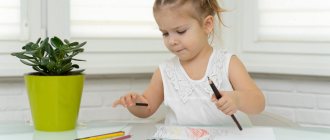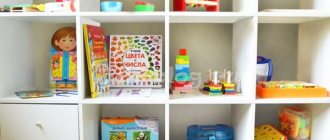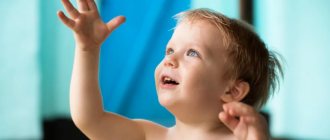By the age of three, every child should already have mastered the basic concepts that will help lay the basic foundation and develop intelligence. Many parents prefer to conduct classes at home, because children at 3 years old can be quite capricious. They do not yet know how to communicate with peers, are afraid to be in study groups and do not know how to maintain silence. Three-year-olds often look around and try to correct each other's answer, even if the answer was given correctly.
So, what activities should be done with three-year-olds?
First of all, math classes:
What should the baby learn?
- count to five;
- show your child simple geometric shapes: circle, square, triangle;
- teach your child to compare: more-less, better-worse;
- teach how to select pairs.
Please take into account that at three years old a child cannot concentrate on one subject for a long time. So during the day it is better to have 3-4 lessons of 15-20 minutes each than one hour-long lesson. Buy educational cards, counting sticks, puzzles and copybooks for educational activities.
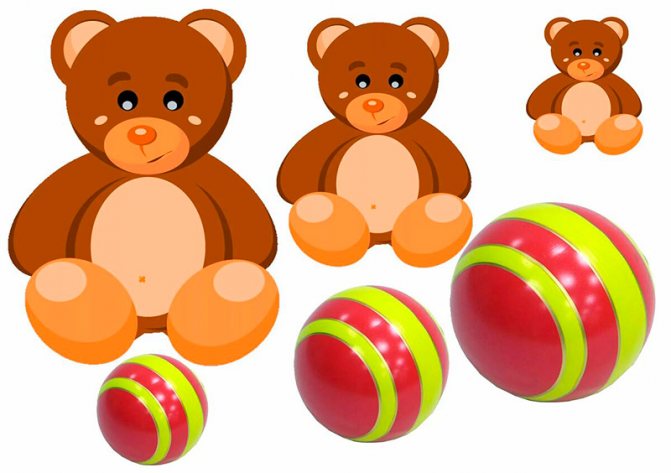
Children at three years old can still put material in their mouth and chew paper, so it is better to laminate the cards. Otherwise, you will prepare a new set for each lesson.
Try to play educational games according to the following scenario:
- Show your child a card with a simple image.
- ask him to tell him what he saw in the picture, how many objects, what they are.
- If you have 1 more set of cards on hand, ask your child to find a pair in the second set.
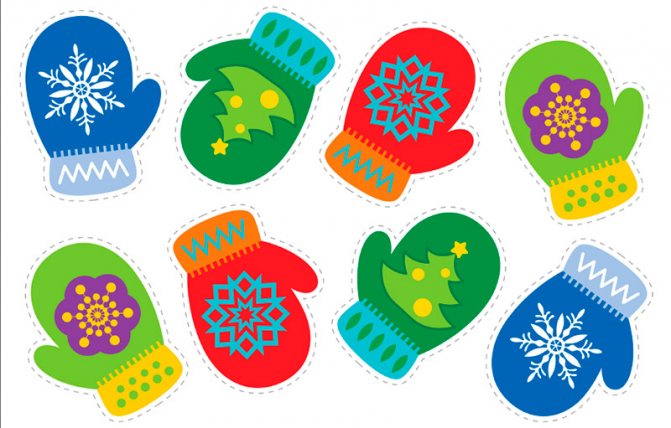
Classes of this type can be carried out not only at home, but also on the street. In the summer, you can play the game “Pirate Treasures” with your son or daughter. Hand your child a map with a route, mark a couple of places with a cross and let your little one look for treasures. Motivate your child, tell him that he must solve this problem and help him if problems arise.
And if you have several children at home, then you can arrange a real competition between them. Children will have fun, explore the world and learn interesting things.
And if it's cool outside, play this game right at home. Just hide all fragile items.
Puzzles
Select puzzles for three-year-olds so that the picture is large and clear. And to start, take puzzles of 2-3-4 parts.
You can make an educational puzzle at home yourself. Take the picture and cut it into several squares. While the baby is putting together a puzzle, he will learn new words and numbers, develop attention and fine motor skills.
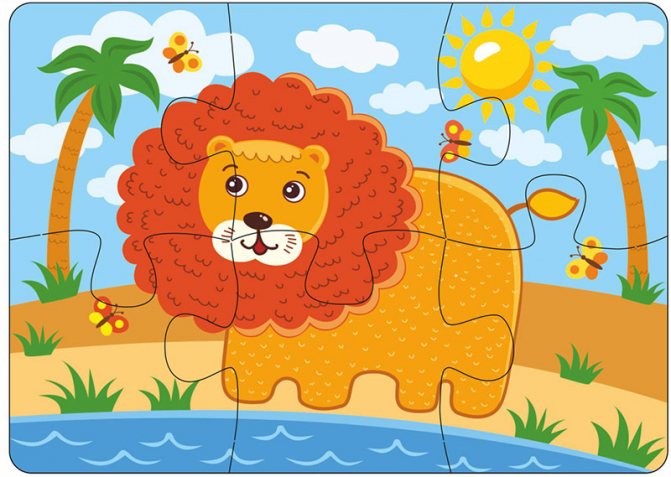
Copybooks
Copybooks are useful for kids, if only to develop their hands. Thanks to this material, kids learn to write letters and numbers correctly and draw neat lines. Again, you need to select such copybooks so that the images are large enough and the lines are clear.
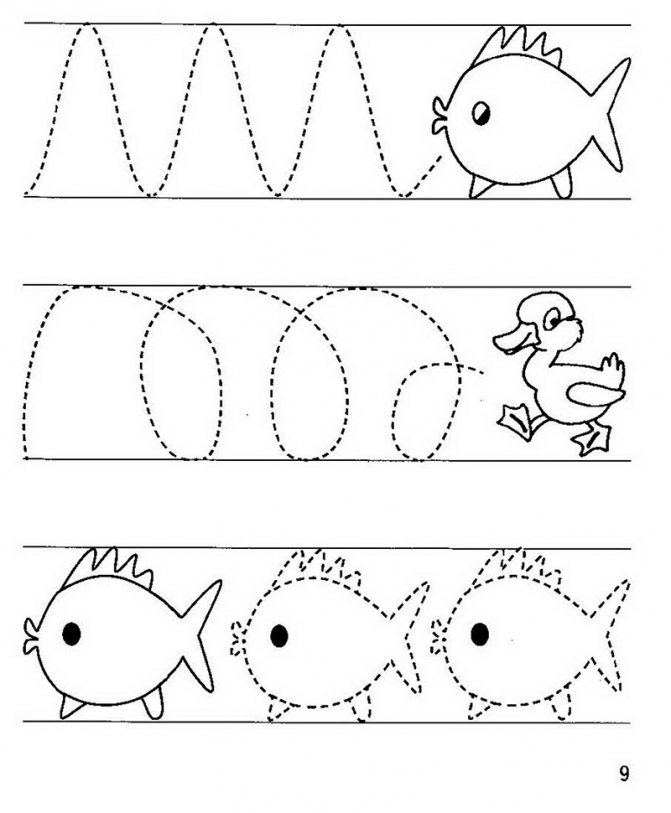
Coloring pages
All kids love coloring books. Therefore, parents can and should use coloring books quite often. This material can be used at home, on the street, and at a party. For three-year-old children, it is best to buy coloring books that contain the image of the number itself and its name (this way the child will also practice reading).
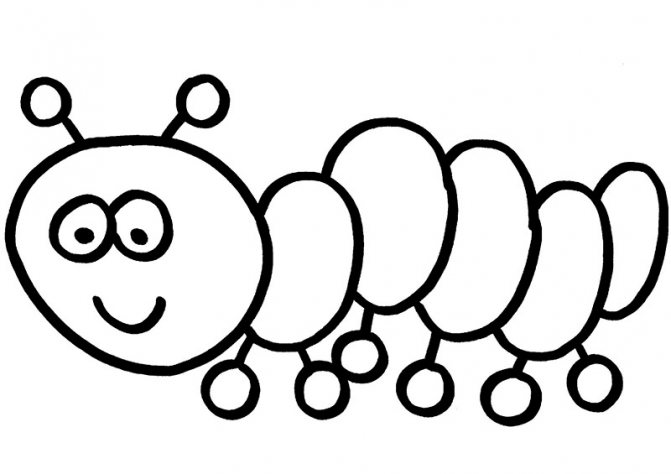
How educational activities are carried out with children 3-4 years old at home
Homeschooling is a labor-intensive process that requires certain preparation of the parent and the right attitude. To work effectively, you need not only to think through the content of the lessons, but also to awaken the child’s interest in learning. What do you need to know?
Principles of organizing home activities
Any training, home or professional, must be carried out in accordance with the basic principles of pedagogy and take into account the age characteristics of the preschool child. What do you need to know?
- Firstly, for 3-year-old children the leading activity is play. Only by playing can a child be completely immersed in the learning process and firmly grasp the necessary knowledge.
- Secondly, all activities with the child must be systematic. Daily lessons, which are planned in advance, become more difficult as they are learned.
- Thirdly, the child’s activities should constantly change - alternate mental stress with physical exercise and creative tasks.
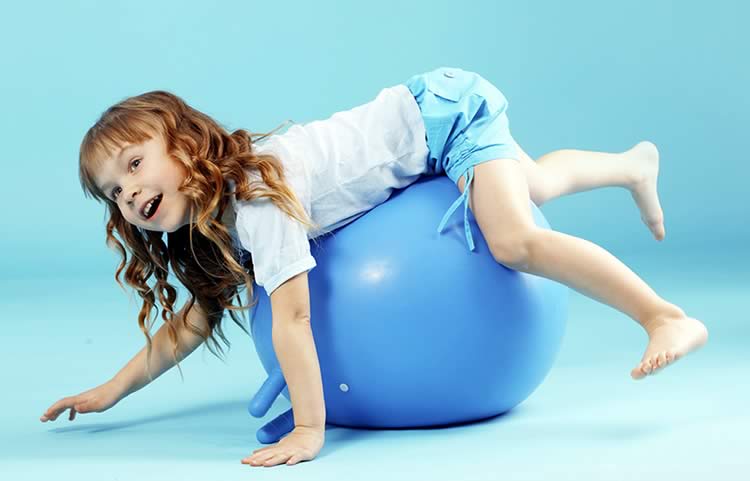
Conditions for conducting “lessons” for preschool children
At 3 years old, children are already able to concentrate for a long time on an object that interests them, and yet you should not plan too many tasks. The duration of classes for children 3 years old should be no more than 25 minutes, with a mandatory dynamic pause.
Thematic material:
- Educational games for 3 year old boys
- Games for girls 4 years old - educational
It is better to start work when the child has had time to rest and is in a good mood; they usually do it after breakfast or nap, every day at the same time.
While working, nothing should distract the baby’s attention - remove everything unnecessary from the table and out of sight.
Use bright props, handouts and manuals. You can buy them or make them yourself. To avoid losing interest in these learning tools, try not to play with them outside of class.
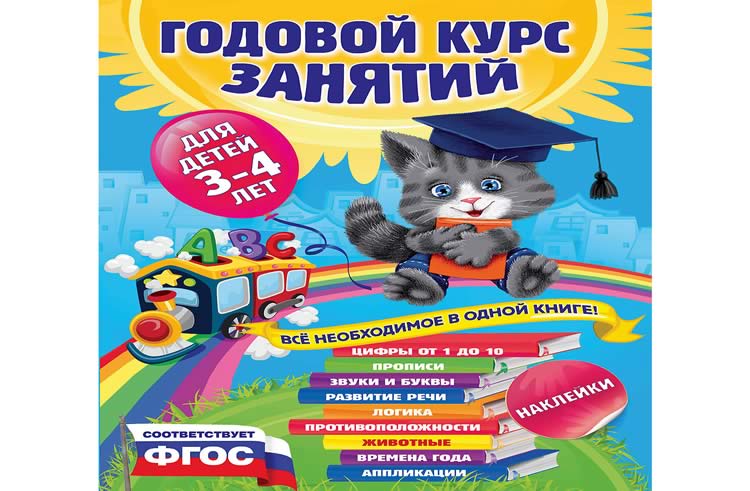
It’s good if all the exercises in the lesson are united by one plot. This will make it easier to keep the child’s attention.
Take a break from mental stress through physical exercises - dancing to music, walking along a line and an incline, playing with a ball, etc. They need to be included in every lesson.
Objectives and planning
The effectiveness of any work, including pedagogical work, depends on correctly set tasks and a clear plan for their implementation.
The main objectives of developmental activities for children 3-4 years old include the following:
- formation of thinking skills;
- development of motor skills, imagination and creativity;
- improving the sound and semantic aspects of speech, expanding vocabulary;
- formation of ideas about the phenomena and properties of objects, the surrounding world;
- education of personal qualities, teaching norms of behavior.
It is necessary to draw up a plan of developmental activities for children from 3 years old so that different types of activities alternate. Weekly planning will help you understand which exercise should be left, which one should be made more difficult, and which one should be put off for a while.
Logic classes:
What should a child of 3 years old be able to do?
- find and explain the error;
- see similarities and differences;
- remember pictures and words;
- concentrate attention.
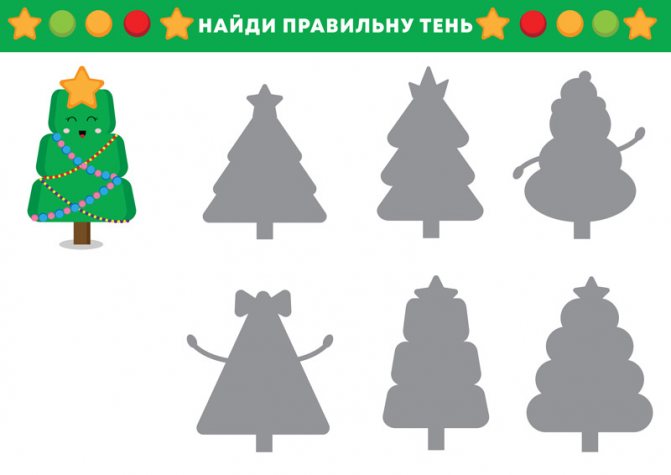
Three-year-old children move a lot and cannot sit still for long. If they lack physical activity, the child begins to get irritated, cry and become hysterical. It is important for a parent to remember this when planning an activity with their baby. The maximum lesson time should be 20 minutes. Before classes, it is better to do a ten-minute physical warm-up.
After the lesson, praise your offspring. Tell him that he did well and that he deserves encouragement. As a reward, you can take your baby to the park or some playroom.
Try to interest your baby in playing associations and opposites. Such exercises are good for training reaction speed, speech skills, and logical thinking.
At this age, children perfectly understand and love fairy tales and different stories. Tell them more often and make some mistake on purpose, and let the baby find it. For example, you say that winter has come, and then in the middle of the fairy tale the heroes go to the forest to pick mushrooms and berries.
The following exercise perfectly develops the logic and imagination of children: you show the child several cards that are related in meaning. And then invite your child to add another card that would fit into the story. For example, you show cards of mom, dad and child, and your kid can add a cat or a dog or a beautiful house here. And let him try to explain why he added this card.
Speech classes:
What should the baby learn?
- his sentences should consist of 5-6 words;
- he can say his first name, last name, and the names of his parents;
- knows how to distinguish objects by characteristics;
- understands the meaning of actions (walk, run, cry, search, play, etc.)
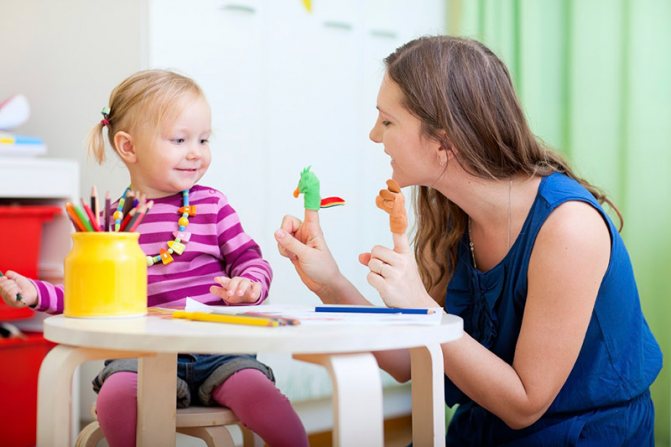
At home, you can invite your child to collect cubes or cards with letters so that he learns to collect words. In three-year-olds, the memory is not yet particularly developed, so give the tasks not difficult so that he can easily collect the hidden word.
Household activities:
What should the baby learn?
- must be able to dress and undress independently;
- cut out various pictures;
- color pictures;
- must understand the basic rules of accuracy.
Parents often hang posters and pictures around the house with hygiene rules. Every time a baby passes by, he remembers and remembers that he needs to wash his face and brush his teeth regularly.
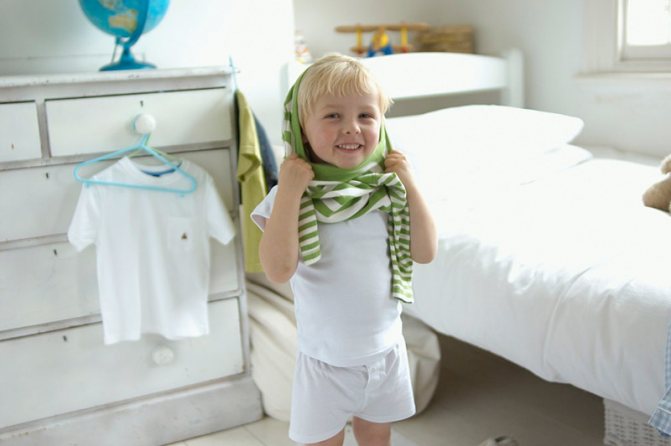
Try to develop creative skills in your son or daughter. Once every 1-2 months, organize holidays or celebrations at home, for which you need to prepare costumes, decorations, etc. Involve your baby in the preparation. Let him help you.
If you don’t have enough time to organize holidays, make crafts together from different materials. Remember to use pine cones, leaves, acorns and other natural materials.
Junior group. Early childhood, nursery. Children 1-4 years old
Summary of a lesson on sensory development of young children: “Pick up the strings for the balls”
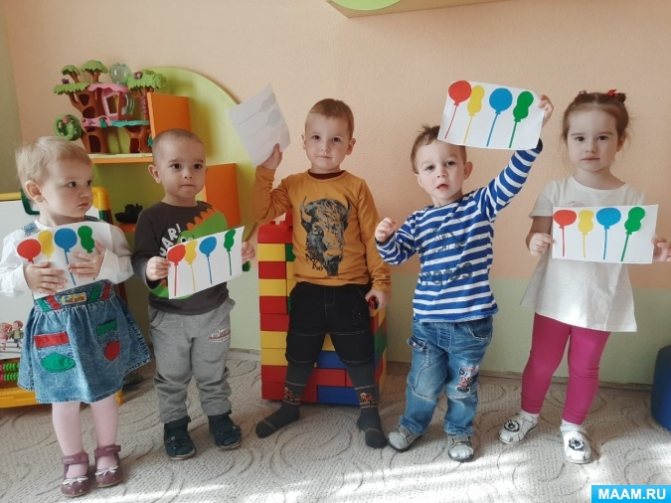
. Goal: select pairs of objects of the same color. Objectives: - stimulate children to actively explore different colors; - form ideas about a pair of objects of the same color. -...
Summary of a lesson on speech development for children of the early age group “Toy Store” Summary of speech development for children of the early age group on the topic: “Toy Store”
Goal: Development of speech in young children through theatrical activities. Objectives: teach children to write descriptive stories based on toys; form the intonation aspect of speech;...
Cognitive activities:
What should the baby learn?
- know some animals;
- know some plants;
- distinguish a vegetable from a fruit, a berry from a mushroom;
- know and understand natural phenomena (rain, snow, sun);
- distinguish the time of year and day.
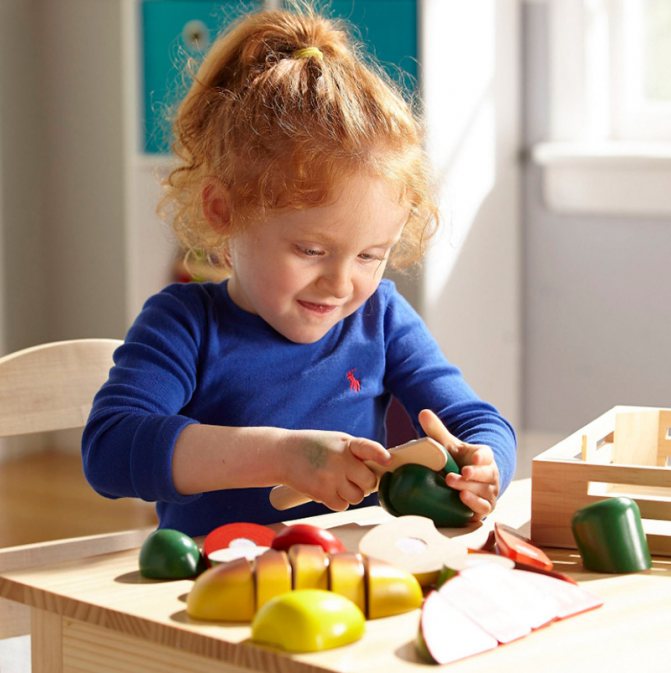
Prepare images of various animals, birds and plants. Try to choose images of those plants and animals that you can find in your area. Then during your next walk you can show them to your baby and tell them some interesting facts and stories about them.
Sports activities:
Physical exercise is just as important for three-year-olds as intellectual exercise. When the child goes to school, he will be able to do all the exercises in physical education lessons. He will also be able to play outdoor games with classmates without any problems and will be able to show his endurance and dexterity. At this age, children strive to spend time with those with whom they find it interesting and fun. If your child is sedentary and inactive, the number of his friends may decrease sharply.
Start your morning with a simple invigorating exercise. Do some exercises to warm up your muscles and stretch. If you wish, you can start your morning with a run.
Girls love different dances, the main thing is that cheerful music is playing at this moment. Boys prefer playing with a ball. You can include all this in your daily routine and have fun together.
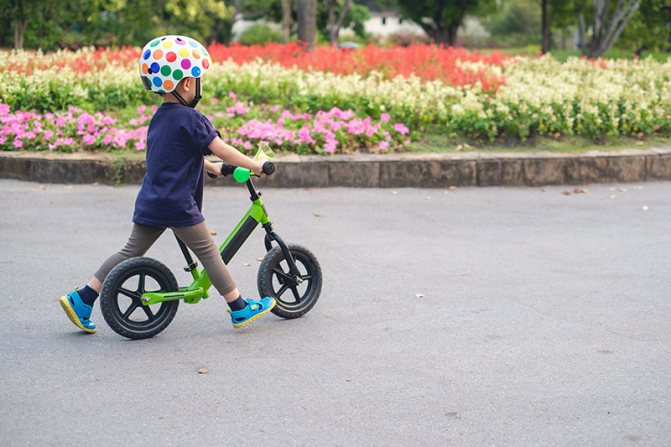
In any case, you will need all kinds of equipment to perform the exercises: small dumbbells, balls, a jump rope, hoops, and so on.
Three-year-old children are very inquisitive and smart. At this age, children develop their first habits. If you are able to correctly create a daily routine for your child and keep him busy with useful and educational exercises, your work will definitely be rewarded.
Speech development
Normally, a three-year-old child speaks about 1000 words well and can already speak well, so special attention should be paid to speech development. What can you do?
- Communicate with your child as much as possible, be interested in what he says.
- Perform articulation exercises daily. This will help you place the speech sounds correctly.
- Discuss the story pictures. A collection of fairy tales by Vladimir Suteev is ideal for classes.
- Learn poems and songs. Poetic riddles are a hit with kids.
Speech development is positively influenced by games and exercises that involve fine motor skills , for example:
- all kinds of games with cereals, beans, buttons, sand, shells, pasta, etc.;
- fastening buttons, lacing;
- finger gymnastics;
- origami;
- games with water.
Musical activities help develop speech hearing: singing, guessing familiar sounds, playing musical instruments, guessing songs, singing vowel sounds.
